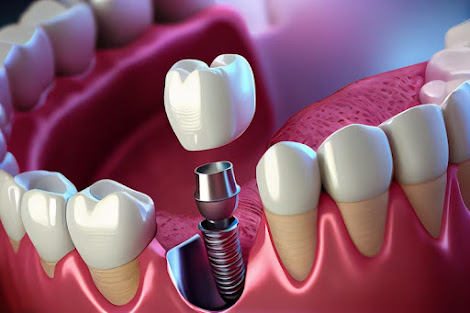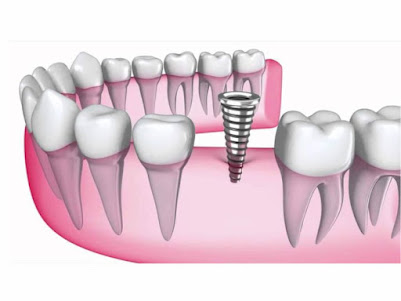How Do I Care for My Dental Implants After Surgery?
Dental implants are a popular and effective solution for replacing missing teeth. They offer a natural look and feel and can last a lifetime with proper care. However, the period immediately following implant surgery is crucial for ensuring the long-term success of the implants. Here's a comprehensive guide on how to care for your dental implants after surgery.
Immediate Post-Surgery Care
1. Follow the Dentist's Instructions
Your dentist will provide specific instructions tailored to your case. It is crucial to follow these instructions carefully, as they are designed to promote healing and prevent complications.
2. Managing Discomfort and Swelling
It's normal to experience some discomfort, swelling, and bruising in the days following the procedure. Over-the-counter pain medications, such as ibuprofen or acetaminophen, can help manage discomfort. Applying ice packs to the affected area for 15-20 minutes every hour can also reduce swelling. Avoid using heat packs, as they can increase swelling.
3. Diet and Hydration
Stick to a soft food diet for the first few days after surgery. Foods like yogurt, mashed potatoes, and smoothies are ideal. Avoid hot, spicy, or crunchy foods, as they can irritate the surgical site. Additionally, drink plenty of water to stay hydrated, but avoid using straws, as the suction can dislodge blood clots and delay healing.
Oral Hygiene
4. Gentle Brushing
Maintaining good oral hygiene is crucial to prevent infection. However, it's important to be gentle around the implant site. Use a soft-bristled toothbrush to clean your teeth, avoiding the surgical area. Your dentist may recommend a specific type of toothpaste or mouthwash to aid in healing.
5. Rinsing Your Mouth
Avoid rinsing your mouth on the first day post-surgery, as it can disrupt the formation of blood clots. After the first 24 hours, gently rinse your mouth with a saline solution (a teaspoon of salt in a glass of warm water) several times a day, especially after meals. This helps to reduce bacteria and promote healing.
Activity and Lifestyle
6. Rest and Recovery
Rest is essential in the first few days after surgery. Avoid strenuous activities and exercise, as they can increase blood flow and cause bleeding. Elevate your head with pillows when lying down to reduce swelling.
7. Avoid Smoking and Alcohol
Smoking and alcohol can significantly impair the healing process. Smoking reduces blood flow to the gums, slowing healing and increasing the risk of infection. Alcohol can interfere with medication and irritate the gums. It's best to avoid both for at least two weeks post-surgery.
Long-Term Care and Maintenance
8. Routine Check-Ups
Regular dental check-ups are vital for monitoring the health of your dental implants. Your dentist will check for proper healing, ensure the implant is securely integrated, and assess the health of the surrounding tissues. They may also clean the area to remove any plaque or tartar buildup.
9. Proper Oral Hygiene
After the initial healing period, maintain a consistent oral hygiene routine. Brush twice a day, floss daily, and use an interdental brush or water flosser to clean around the implants. Special implant-friendly floss and brushes are available that are designed to protect the implant surface and gums.
10. Diet and Lifestyle Choices
While dental implants are durable, it's still important to avoid habits that can damage them, such as chewing ice or hard candies. A balanced diet rich in vitamins and minerals supports overall oral health. Avoid excessive consumption of sugary foods and beverages, as they can contribute to gum disease and other oral issues.
Recognizing Complications
11. Signs of Infection or Complications
It's important to be aware of potential signs of complications, such as persistent pain, swelling, or bleeding. If you experience any of these symptoms or if the implant feels loose, contact your dentist immediately. Early intervention can prevent more serious issues and ensure the longevity of your implants.
Conclusion
Caring for dental implants after surgery involves a combination of immediate post-operative care and long-term maintenance. By following your dentist's instructions, maintaining good oral hygiene, and making healthy lifestyle choices, you can ensure that your implants remain in excellent condition for years to come. Remember, regular dental visits are essential for monitoring your implants' health and addressing any issues promptly. With proper care, dental implants can provide a beautiful and functional smile that lasts a lifetime at Pinnacle Dental Plano.




Comments
Post a Comment